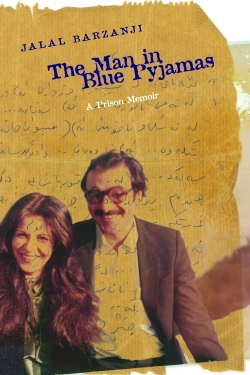The Man in Blue Pyjamas
A Prison Memoir
- 2011 INDIES Finalist
- Finalist, Autobiography & Memoir (Adult Nonfiction)
For Kurdish poet Jalal Barzanji, life has been a series of displacements and exiles. In 1963, when Barzanji was seven, Iraqi forces launched a brutal military campaign against the Kurds. His village of Ashkaftsaqa was decimated, forcing his family to flee to Hawler, capital of the Kurdistan region.
In 1991, the peshmerga (Kurdish freedom fighters) wrested power from Saddam Hussein; Victory was short-lived; Iraqi troops swiftly counterattacked, causing nearly three million Kurds to flee. Barzanji’s family escaped to Iran. Their exile lasted several months until establishment of a no-fly zone made it safe to return to Hawler.
In 1996, Barzanji was again driven from his homeland during the Kurdish Civil War. He had published a poem that opposed the conflict and knew reprisal was imminent. He hired a smuggler to take him to Turkey. Barzanji, his wife, and his three children resided illegally in Turkey for fourteen months, perpetually worried they would be deported before being granted asylum.
Barzanji’s striking memoir chronicles these arduous and emotionally damaging cross-continental journeys while also telling of Barzanji’s transition from boyhood to adulthood; his passion for libraries, reading, writing, and the poetry of Al-Bayyati, Nazik al-Mala’ka, Baudelaire, and Rimbaud; his successful yet perilous career as a poet “writing in an atmosphere of fear”; and his eventual safe refuge and freedom in Edmonton, Alberta. And at heart, Barzanji’s book renders a superb account of Kurdish history and culture and the suffering endured during Saddam’s tyrannical rule. Yet, if there was a time in Barzanji’s life that was the most difficult, it was the day he was arrested for writing subversive poetry about Saddam’s regime.
As Barzanji relates, it is customary for Kurdish men to change into “pyjamas” when they return home from work. The evening of March 7, 1986, was no different. Barzanji dressed in his blue pyjamas, choosing this pair because of his fondness for the color, and joined his family and friends for dinner. Barzanji, solitary and introspective, gazed out the window, lost in self-reflection. His reverie was interrupted when Saddam’s armed secret police burst into his home and apprehended him. The police blindfolded and handcuffed him; they punched and kicked him and threw him into the back of a truck. Twenty minutes later, Barzanji was tossed into a room and left alone for twenty-four hours. Screams from prisoners who were being tortured echoed all around him, and Barzanji’s “flimsy” blue pyjamas could not ease his discomfort.
Barzanji’s imprisonment lasted three years. Each day he wondered if he would ever be freed or if he would be executed without his family ever discovering his fate. Barzanji yearned for pencil and paper—his need to write was nearly overpowering. Storytelling became the activity that kept him and his fellow prisoners from complete despondency. Sharing anecdotes about love, sorrow, friends and family, happiness, and Kurdish heroism restored their humanity and galvanized their ethnic pride.
Barzanji’s memoir is a survivor’s story conveyed in direct, laconic, and decisive prose. The prison ordeal he recounts could crush the mightiest of souls. Yet Barzanji forbears bitterness; his world encompasses “peace, love, and beauty.”
Reviewed by
Amy O'Loughlin
Disclosure: This article is not an endorsement, but a review. The publisher of this book provided free copies of the book and paid a small fee to have their book reviewed by a professional reviewer. Foreword Reviews and Clarion Reviews make no guarantee that the publisher will receive a positive review. Foreword Magazine, Inc. is disclosing this in accordance with the Federal Trade Commission’s 16 CFR, Part 255.

